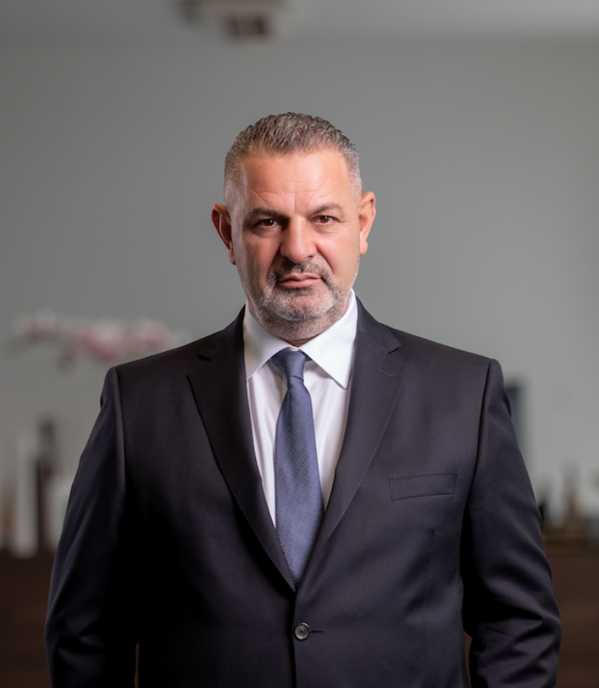Words by Blagoje Antić, Founder and Director of DHG Properties
In 1971, the UAE’s GDP was valued at nearly AED 23.9 billion . Considering that there are only 2,640 billionaires in the world , this would be a significant amount of money for any person’s net worth to be valued at, however, it’s a completely different story when examining countries.
When analyzing the data that is available for 196 countries via Wise Voter, the UAE’s GDP would rank among the bottom 20% of the world if its value was the same today as it was 52 years ago. However, the nation has made immense progress across various industries over the past half-century to now boast a GDP of just over AED 1.52 trillion, the 33rd highest worldwide .
The UAE’s wise leadership mandated diversification away from oil in the 1980s, and country-wide efforts have since fostered an innovative, knowledge-based, skilled, and technology-driven economy . This journey has simultaneously been instrumental in growing the country’s population and boosting the nation’s economic value to its current stature today.
With this economic growth, providing sufficient housing to accommodate the UAE’s growing base of talent has been essential. This notion is as true today as it was over the past 40 years as recent reports indicate that Dubai’s economic progress in the first half of 2023 has exceeded previously set expectations, with the real estate sector being a key component.
Through the first six months of the year, Dubai’s property market logged an eye-popping AED 285 billion in total transactions ; this is especially impressive when noting that the emirate was initially forecasted to exceed AED 300 million by the end of 2023. With Dubai’s real estate sector booming, and well on pace to shatter these expectations, it is important for developers to not compromise on quality while securing sales.
The UAE’s population is diverse with 11.48% of the country being made up of Emiratis and the remaining 88.52% comprising expatriates. Of these 10.17 million people, 25-54-year-olds make up the vast majority of residents at 64.15% . These individuals arguably play the most crucial role in contributing economic value to the country’s real estate sector, albeit, they produce varying levels of income.
For the UAE to continue thriving, especially with the country being synonymous with luxurious offerings, it is imperative that real estate developers allow all wealth classes to afford homes and also ensure that no demographic is unable to avail the quality of life that the nation is known to offer.
Catering to the middle-income segment
By building exceptional but cost-friendly residential projects, developers provide quality housing that is accessible to a broader range of income groups. Such residential developments bridge the gap between high-end luxury properties and basic affordable housing, allowing middle-income individuals and families to access well-designed, comfortable homes with desirable amenities.
With the UAE having a sizable middle-income segment that seeks high-quality housing options without exorbitant price tags, developers who can provide this and still be profitable will distinguish themselves with an enhanced reputation. In turn, this will allow them to capture market share and introduce newer projects that buyers are more receptive to investing in.
Attracting and retaining talent
The UAE is known for its thriving business environment and employment opportunities. This is a key selling point to expats far and wide, and one that has allowed the country to grow more than 20-fold from 350,000 people in 1971 to 10-plus million people today .
To continue attracting, and retaining, skilled professionals and talented individuals, it is crucial to offer expats affordable housing options that align with their lifestyle aspirations and financial capabilities – premium but affordable residential developments do just that while also enabling the UAE’s economy to thrive prosperously.
Promoting social inclusivity
Although the UAE is synonymous with lavish spending and luxurious offerings, not all wealth classes within the country’s borders have the privilege of living such a lifestyle.
Affordable housing developments contribute to social inclusivity by ensuring that individuals from diverse income groups can live in well-planned communities. This promotes integration and creates a more diverse and vibrant society, fostering a sense of belonging and community cohesion. Moreover, individuals who currently cannot afford the luxuries of the UAE will be able to budget, save, and invest to eventually be able to.
Sustainable urban development
The UAE has been a regional leader in spearheading sustainable change through broader initiatives like UAE Net Zero 2050 and real estate-specific mandates such as the Dubai 2040 Urban Masterplan. Building high-quality but financially-accessible housing can be part of a sustainable urban development strategy, especially as the country’s population is projected to reach more than 13 million people by 2050 .
By providing housing options close to workplaces and public transportation, commuting times, congestion, and carbon emissions will all be reduced. Well-planned and environmentally friendly projects can incorporate energy-efficient features, green spaces, and sustainable design practices to promote a more sustainable and livable urban environment.
Key to economic diversification
As the first two quarters of 2023 have shown, real estate is (and has been for the past fifty-plus years) essential in elevating the UAE’s economic value and supporting its population growth. Premium but affordable residential developments in the UAE will therefore continue being necessary to address housing demand, cater to the middle-income segment, attract talent, promote social inclusivity, contribute to sustainable urban development, and ultimately support economic diversification.
To ensure the nation’s diversification efforts are fully realized, and to maintain the country’s standing as one of the best places for expats to work and live in , a well-rounded infrastructure that includes affordable housing options is vital. It is being increasingly seen in the UAE with multiple developers beginning to prioritize this concept in key areas such as Jumeirah Village Circle (JVC), Jumeirah Gardens City, and DIFC to name a few. However, this is not a short-lived trend but rather a pattern that must be maintained for the betterment of the UAE.

